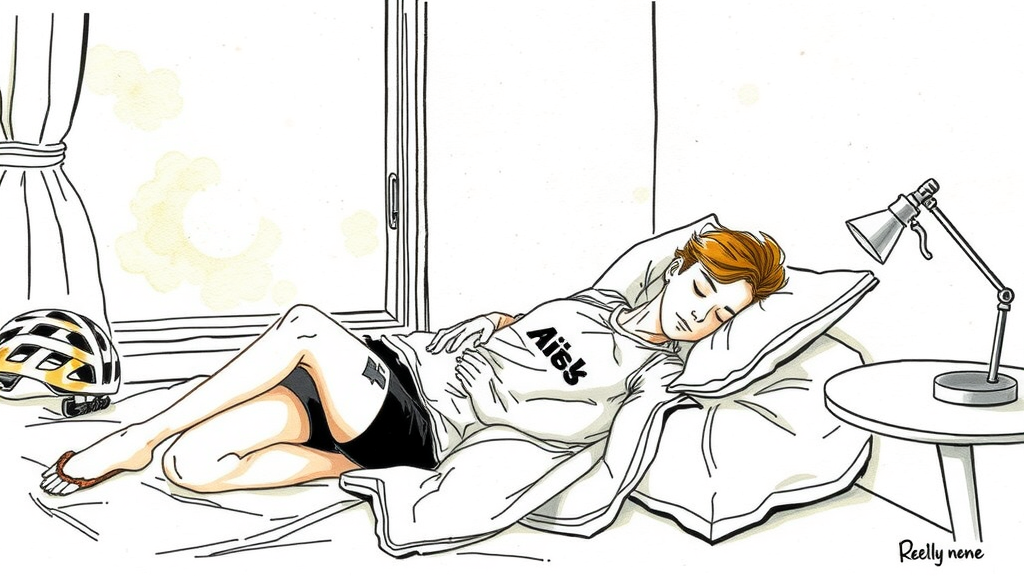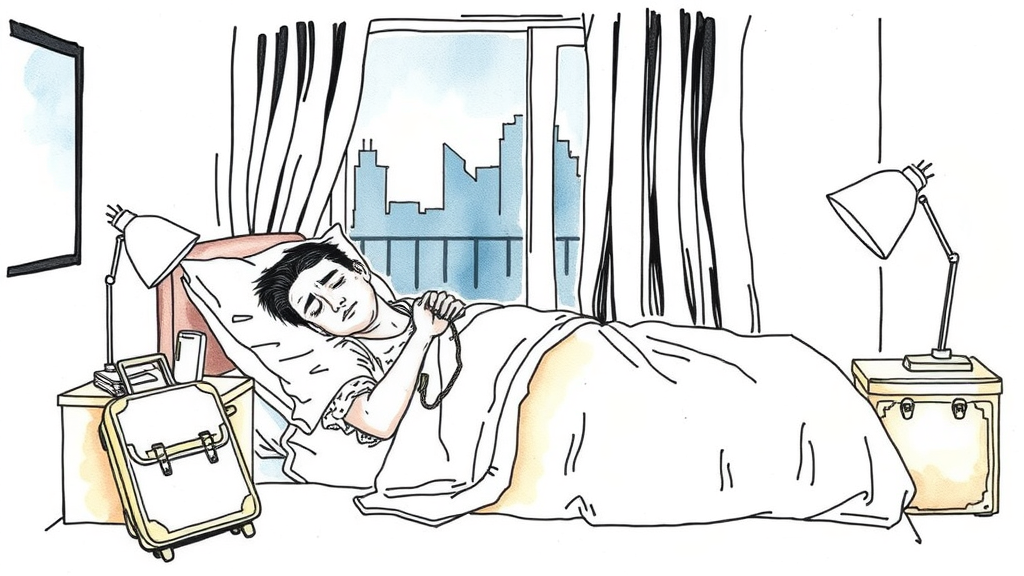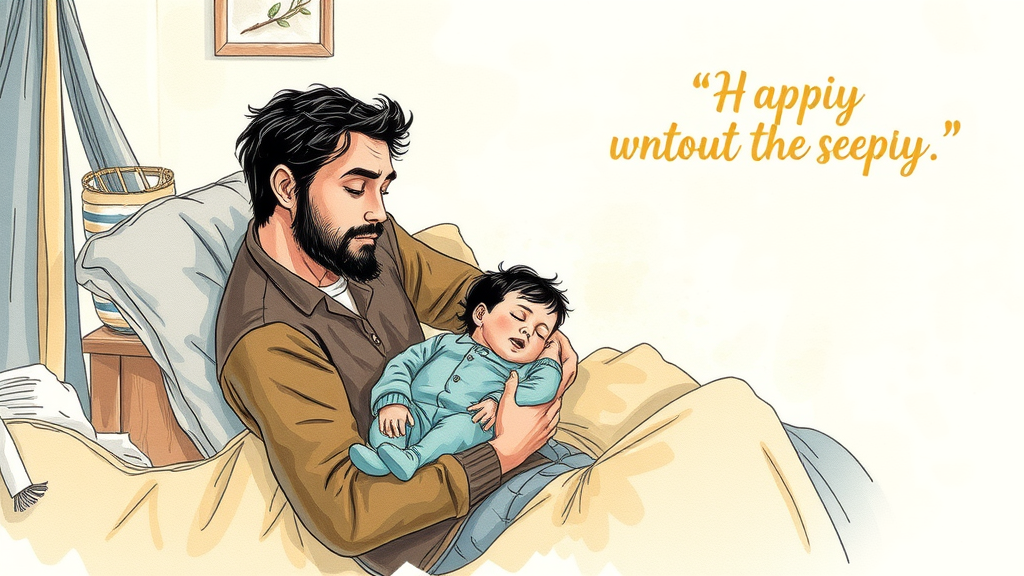· undefined · Health · 17 min read
The Ultimate Guide to CBTI Sleep Therapy for Entrepreneurs
Entrepreneurs often struggle with sleep. Discover Cognitive Behavioral Therapy for Insomnia (CBTI), a powerful, drug-free sleep treatment for lasting insomnia relief.
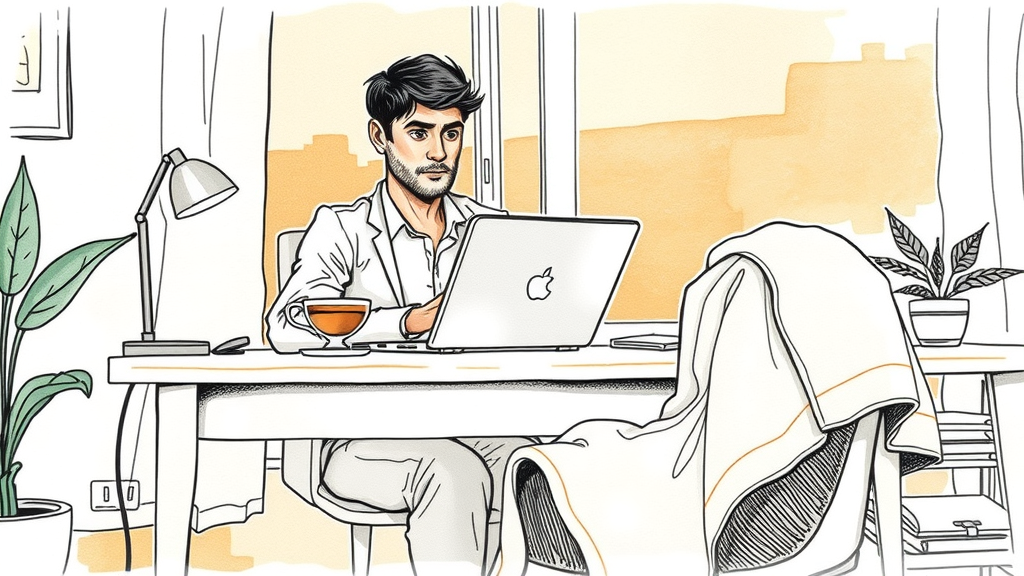
Introduction: The Entrepreneur’s Sleep Paradox
Being an entrepreneur is often portrayed as a relentless pursuit of success, a 24/7 hustle where dedication knows no bounds. While this drive is commendable, it often comes at a hidden cost: sleep. The entrepreneurial journey is fraught with challenges – long hours, high stakes, constant decision-making, financial pressures, and the burden of responsibility. These factors collectively create a perfect storm for sleep deprivation, leaving many entrepreneurs caught in a vicious cycle of exhaustion and diminished performance. Chronic lack of sleep is not a badge of honor; it’s a significant impediment to creativity, innovation, and long-term success. It can lead to poor judgment, decreased productivity, and a decline in overall well-being.
Fortunately, there’s a powerful, evidence-based solution that doesn’t involve medication: Cognitive Behavioral Therapy for Insomnia (CBTI). Often hailed as the gold standard for insomnia relief, CBTI is a comprehensive, drug free sleep treatment that addresses the root causes of sleeplessness. Unlike quick fixes, CBTI equips you with sustainable strategies to retrain your brain and body for healthy sleep. This guide will delve deep into the world of CBTI, explaining why it’s uniquely suited to the entrepreneurial lifestyle and how it can help you reclaim your nights and supercharge your days.
Why Sleep is Non-Negotiable for Entrepreneurs
In the fast-paced world of entrepreneurship, sleep is often the first casualty. The misconception that sleep is a luxury, an activity to be sacrificed for more ‘productive’ hours, is deeply ingrained in startup culture. However, this couldn’t be further from the truth. For entrepreneurs, sleep is not just rest; it’s a critical performance enhancer, a strategic asset that directly impacts every facet of their business and personal life.
Adequate sleep is fundamental for:
- Cognitive Function: Sleep deprivation impairs focus, concentration, decision-making, and problem-solving abilities. For an entrepreneur, this translates to missed opportunities, poor strategic choices, and a decline in innovation.
- Creativity and Innovation: The brain consolidates memories and makes new connections during sleep, which is vital for creative breakthroughs and novel ideas – the lifeblood of any successful venture.
- Emotional Resilience: The rollercoaster of entrepreneurship demands strong emotional regulation. Lack of sleep exacerbates stress, anxiety, and irritability, making it harder to manage setbacks and interact effectively with teams and clients.
- Energy and Stamina: Long workdays require sustained energy. Sleep is the body’s primary mechanism for physical and mental recovery, directly influencing your capacity to perform consistently.
- Physical Health: Chronic sleep deprivation weakens the immune system, increases the risk of chronic diseases, and can lead to burnout, forcing entrepreneurs to take unplanned breaks from their businesses.
Sacrificing sleep might offer a temporary illusion of more work done, but it inevitably leads to diminished quality of work and an unsustainable pace. For the entrepreneur, prioritizing sleep is not just about personal well-being; it’s a strategic business decision.
Understanding Insomnia and Its Prevalence Among Entrepreneurs
Before diving into the specifics of CBTI, it’s crucial to understand what insomnia truly is. Insomnia isn’t just an occasional restless night; it’s a persistent sleep disorder characterized by difficulty falling asleep, staying asleep, or waking up too early and being unable to return to sleep, despite having adequate opportunity for sleep. Critically, these sleep disturbances cause significant distress or impairment in daily functioning.
Entrepreneurs are particularly susceptible to insomnia for several reasons:
- Constant Mental Arousal: The entrepreneurial mind is often ‘always on.’ Ideas, problems, and to-do lists churn constantly, making it difficult to switch off and relax when it’s time to sleep.
- High Stress Levels: Financial instability, competitive pressures, and the weight of responsibility trigger the body’s fight-or-flight response, releasing cortisol and adrenaline that interfere with sleep-inducing hormones.
- Irregular Schedules & Travel: Business travel, late-night meetings, and working across different time zones disrupt natural circadian rhythms, making consistent sleep patterns challenging.
- Blurring of Work-Life Boundaries: The lines between work and personal life often blur, leading to working from bed, checking emails late at night, and an inability to disconnect from the business.
- Performance Anxiety: The pressure to perform at peak levels can lead to anxiety about sleep itself, creating a self-fulfilling prophecy where worrying about not sleeping prevents sleep.
Recognizing these unique challenges is the first step towards seeking effective sleep therapy like CBTI, which is specifically designed to address both the behavioral and cognitive factors contributing to sleeplessness.
Introducing CBTI: A Scientific Approach to Sleep
While many people reach for sleep aids or quick fixes when experiencing sleeplessness, these often provide only temporary symptomatic relief without addressing the underlying causes. This is where Cognitive Behavioral Therapy for Insomnia (CBTI) shines. CBTI is an evidence-based, structured program that helps individuals identify and replace thoughts and behaviors that hinder sleep with habits that promote sound sleep.
Unlike sedative-hypnotic medications, which can have side effects and lead to dependency, CBTI is a highly effective drug free sleep treatment recognized as the gold standard by numerous medical organizations, including the American Academy of Sleep Medicine. Its efficacy lies in its holistic approach, targeting the complex interplay between thoughts, feelings, and behaviors that contribute to chronic insomnia.
The core premise of CBTI is that insomnia is often maintained by learned behaviors and maladaptive thoughts. For example, spending too much time in bed awake, associating the bed with frustration, or believing one cannot function without eight hours of perfect sleep. CBTI systematically dismantles these patterns, retraining your brain to associate your bed with sleep and building healthier sleep habits.
CBTI is not a one-size-fits-all solution; it’s a personalized program tailored to an individual’s specific sleep patterns and challenges. It typically involves a series of structured sessions, often with a trained therapist, and requires active participation and commitment from the individual. For entrepreneurs, this means investing time and effort upfront for significant, lasting returns in sleep quality and overall well-being.
The Core Components of CBTI Tailored for Entrepreneurs
CBTI integrates several distinct techniques, each playing a crucial role in dismantling the cycle of insomnia. For entrepreneurs, understanding how each component addresses their specific challenges is key to successful implementation.
Sleep Restriction Therapy (SRT): Reclaiming Your Bed
SRT might sound counterintuitive – you’re restricting sleep to improve it – but it’s incredibly effective. The goal is to limit the time you spend in bed to your actual sleep time, thereby increasing your sleep drive and making your sleep more consolidated and efficient. For instance, if you’re spending 8 hours in bed but only sleeping for 5, SRT might initially reduce your time in bed to 5.5 hours. This creates mild sleep deprivation, making you fall asleep faster and stay asleep more soundly. As your sleep efficiency improves, your time in bed is gradually increased.
Entrepreneurial Context: Entrepreneurs often spend excessive time in bed trying to sleep, or even working from bed. SRT forces a discipline that can be challenging but ultimately rewarding. It teaches you to view your bed solely as a place for sleep, not for strategizing, answering emails, or worrying about your next pitch.
Stimulus Control Therapy (SCT): Your Bed, Your Sleep Sanctuary
SCT aims to break the learned associations between your bed (and bedroom) and activities that promote wakefulness or anxiety. When you struggle to sleep in your bed night after night, your brain begins to associate the bed with frustration and wakefulness rather than relaxation and sleep. SCT re-establishes a strong mental link between your bed and sleep.
Key Rules for Entrepreneurs:
- Go to bed only when you are sleepy.
- Use your bed only for sleep and intimacy (no work, no screens, no eating).
- If you can’t fall asleep within 20 minutes, get out of bed and go to another room. Return only when you feel sleepy again. Repeat as often as necessary.
- Wake up at the same time every day, regardless of how much you slept the night before (even on weekends).
- Avoid napping (especially long or late naps).
Entrepreneurial Context: This component is critical for entrepreneurs who blur the lines between work and rest. The discipline of SCT helps create a mental boundary, signaling to your brain that the bedroom is a no-work zone, a dedicated space for rejuvenation.
Cognitive Restructuring: Rewiring Your Sleep Mindset
This core element of cognitive behavioral therapy for insomnia targets the maladaptive thoughts and beliefs that fuel insomnia. Many insomniacs develop unhelpful thoughts about sleep, such as “I’ll never sleep well,” “I can’t function without 8 hours,” or “If I don’t sleep tonight, my business will suffer.” These thoughts create anxiety, making it even harder to sleep.
Cognitive restructuring involves:
- Identifying negative thoughts: Becoming aware of your specific worries and beliefs about sleep.
- Challenging these thoughts: Examining the evidence for and against these thoughts. Are they realistic? Are they helpful?
- Replacing them with balanced thoughts: Developing more realistic and helpful perspectives on sleep and its impact.
Entrepreneurial Context: Entrepreneurs often carry a heavy burden of responsibility and a fear of failure, leading to catastrophizing about sleep. Cognitive restructuring helps them develop a healthier, more flexible mindset, reducing performance anxiety around sleep itself and fostering genuine insomnia relief.
Sleep Hygiene Education: The Foundation of Good Sleep
While not a standalone treatment for chronic insomnia, sleep hygiene provides the foundational healthy habits that support sound sleep. It involves practical guidelines for creating an environment and lifestyle conducive to sleep.
Key Sleep Hygiene Tips for Entrepreneurs:
- Maintain a consistent sleep schedule: Go to bed and wake up at the same time daily, even on weekends.
- Create a sleep-conducive environment: Dark, quiet, cool bedroom.
- Limit stimulants: Reduce caffeine and nicotine intake, especially in the afternoon and evening.
- Limit alcohol: While it can induce sleep initially, it disrupts sleep later in the night.
- Regular exercise: Promotes better sleep, but avoid intense exercise too close to bedtime.
- Healthy diet: Avoid heavy meals close to bedtime.
- Wind-down routine: Engage in relaxing activities before bed (e.g., reading, gentle stretching).
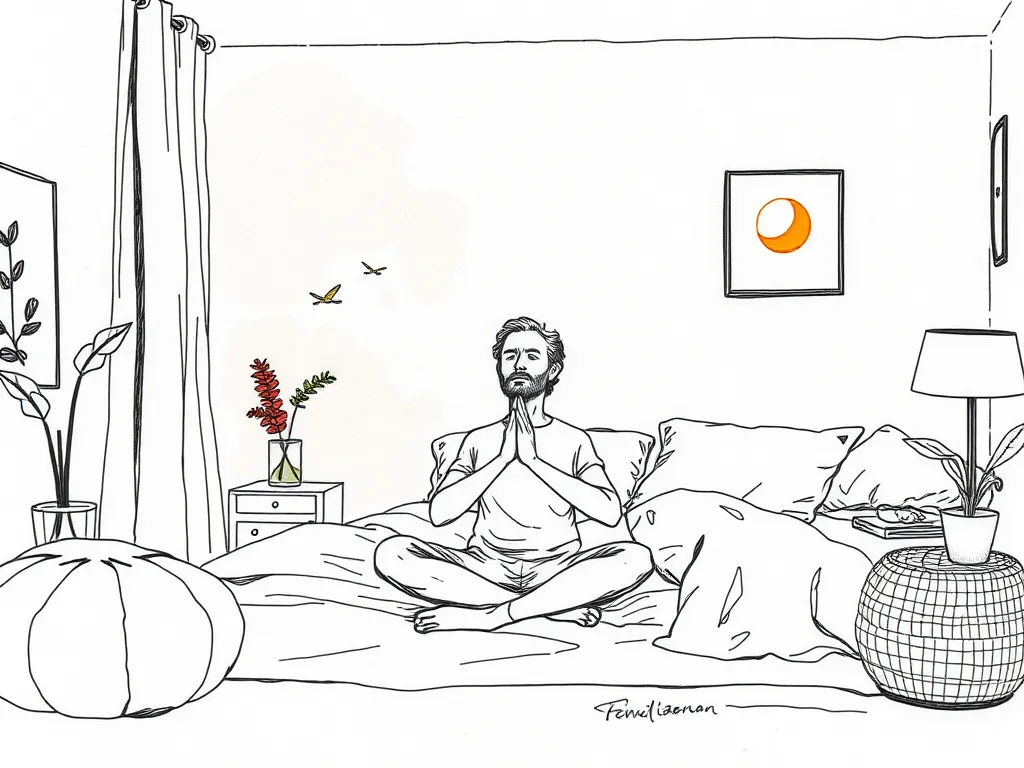
Entrepreneurial Context: The demanding nature of entrepreneurial life often clashes with good sleep hygiene. Travel, inconsistent schedules, and reliance on stimulants are common. This component provides the practical framework for building sustainable habits.
Relaxation Techniques: Calming the Entrepreneurial Mind
Entrepreneurs are frequently under immense stress, making it difficult to relax and transition into sleep. CBTI incorporates various relaxation techniques to help calm the mind and body, reducing the physiological arousal that interferes with sleep.
Common techniques include:
- Progressive Muscle Relaxation (PMR): Tensing and then relaxing different muscle groups throughout the body.
- Diaphragmatic Breathing: Deep, slow belly breaths that activate the body’s relaxation response.
- Mindfulness Meditation: Focusing on the present moment, observing thoughts without judgment.
- Guided Imagery: Visualizing a peaceful scene.
Entrepreneurial Context: These techniques are invaluable for managing the chronic stress and mental chatter common among business owners. Learning to quiet a racing mind and induce a state of calm is a powerful skill that not only aids sleep but also enhances daytime focus and resilience. Entrepreneurs often face high-stakes situations and demand peak mental and physical performance, much like athletes. To learn more about optimizing sleep for peak performance, similar to how athletes use CBTI, consider how these principles apply to your intense entrepreneurial life.
The CBTI Process for Busy Entrepreneurs: What to Expect
Engaging in CBTI is a commitment, but it’s an investment that pays dividends in every area of your life. The typical CBTI program involves 6 to 8 weekly sessions, usually lasting between 30 minutes to an hour, conducted by a trained sleep therapist. However, for busy entrepreneurs, flexible options like online CBTI programs or self-guided apps are increasingly available, making the therapy more accessible.
During your initial sessions, the therapist will conduct a thorough assessment of your sleep patterns, lifestyle, and any underlying issues contributing to your insomnia. You’ll likely be asked to keep a sleep diary for a week or two to gather baseline data. Based on this, a personalized treatment plan will be developed, integrating the CBTI components discussed above.
Each session will focus on a specific aspect of CBTI, providing education, practical strategies, and exercises to implement during the week. You’ll learn to track your sleep efficiency, challenge negative thoughts, and establish new routines. Consistency and adherence to the program are paramount for success, as CBTI is about actively retraining your sleep system, not passively receiving a cure. The process is gradual, and while you may see improvements early on, lasting change requires dedication.
Real-World Benefits for Entrepreneurs
Implementing CBTI extends far beyond simply getting more hours of sleep. For entrepreneurs, the benefits translate directly into enhanced professional performance and personal well-being, providing profound insomnia relief.
- Enhanced Decision-Making and Problem-Solving: A well-rested brain can process information more efficiently, analyze complex situations more accurately, and make sounder strategic decisions, crucial for navigating the entrepreneurial landscape.
- Increased Creativity and Innovation: Sleep fosters divergent thinking, allowing for novel ideas and solutions to emerge. This is invaluable for entrepreneurs needing to constantly innovate and differentiate their ventures.
- Improved Mood and Emotional Resilience: Chronic sleep deprivation makes individuals more irritable, anxious, and prone to mood swings. CBTI helps stabilize mood, making you more adaptable, empathetic, and effective in your leadership and interactions.
- Better Physical Health and Energy Levels: Consistent, restorative sleep boosts your immune system, improves physical stamina, and reduces the risk of burnout, allowing you to sustain the high demands of entrepreneurial life.
- Sustainable Insomnia Relief: Unlike medications, CBTI provides tools and strategies you can use for a lifetime. It empowers you to manage occasional sleeplessness and maintain healthy sleep patterns, offering a lasting drug free sleep treatment.
- Reduced Stress and Anxiety: By directly addressing the cognitive and behavioral factors contributing to sleeplessness, CBTI helps lower overall stress levels, breaking the vicious cycle of stress leading to poor sleep and vice versa.
Ultimately, investing in CBTI is investing in your most valuable asset: yourself. It’s about optimizing your capacity to lead, create, and succeed in a sustainable way.
Addressing Entrepreneurial Challenges with CBTI
While CBTI is highly effective, entrepreneurs face unique hurdles that might make adherence challenging. However, with adaptation and commitment, these can be overcome.
- Time Commitment: The entrepreneurial mindset often prioritizes immediate tasks over long-term investments like sleep therapy. Frame CBTI as an essential business strategy – it’s not a time sink but a time saver due to increased efficiency and reduced errors. Even 30-60 minutes per week for sessions and daily adherence to sleep schedule is a small price for exponential returns.
- Irregular Schedules and Travel: Entrepreneurs often work unconventional hours or travel across time zones, disrupting circadian rhythms. While challenging, CBTI principles can be adapted. For entrepreneurs whose work demands often lead to inconsistent sleep schedules, such as extensive travel or late-night calls across time zones, adapting CBTI principles is key. Strategies for managing sleep in demanding situations like shift work can offer valuable insights into maintaining sleep health despite non-traditional hours. Focusing on maintaining a consistent wake-up time, even on travel days, and creating a strong pre-sleep routine can mitigate the impact of irregular hours.
- Chronic Stress and Hyper-arousal: The constant pressure can keep an entrepreneur’s mind racing. This is precisely where the cognitive restructuring and relaxation components of CBTI become invaluable. Learning to quiet a racing mind and induce physical relaxation is a direct antidote to entrepreneurial hyper-arousal. Many entrepreneurs also juggle significant family responsibilities, including raising children. The unique challenges of balancing demanding careers with family life can significantly impact sleep. Exploring sleep strategies for new parents can provide a complementary perspective on managing sleep deprivation and stress when home life adds another layer of complexity to your schedule.
- The ‘Always-On’ Mentality: The digital age makes it easy to work continuously. CBTI reinforces boundaries – specifically, the bedroom as a sleep-only zone. This discipline helps entrepreneurs create mental and physical separation from work, allowing for true rest.
With a proactive approach and a willingness to adapt, entrepreneurs can successfully integrate CBTI into their demanding lives.

Getting Started with CBTI
Taking the first step towards better sleep is a powerful decision. Here’s how to begin your CBTI journey:
- Consult Your Doctor: Rule out any underlying medical conditions that might be contributing to your sleep problems.
- Find a Certified CBTI Therapist: Look for psychologists or sleep specialists trained in CBTI. Many offer virtual sessions, which can be convenient for busy entrepreneurs.
- Explore Online Programs and Apps: Several reputable online CBTI programs and mobile applications can provide structured guidance if in-person therapy isn’t feasible or preferred. Ensure they are evidence-based.
- Commitment and Patience: CBTI requires active participation and consistent effort. It’s not a quick fix, but the results are durable and life-changing. Be patient with yourself; progress often involves ups and downs.
Remember, investing in your sleep is investing in your most vital resource as an entrepreneur: your well-rested, high-functioning self. Embrace this powerful sleep therapy and unlock your full potential.
Conclusion: Investing in Your Sleep, Investing in Your Success
The narrative of the sleepless entrepreneur is a dangerous myth that perpetuates poor health and undermines long-term success. While the entrepreneurial journey is undoubtedly demanding, sacrificing sleep is a detrimental strategy. Cognitive Behavioral Therapy for Insomnia (CBTI) offers a scientifically proven, drug free sleep treatment that directly addresses the complex interplay of thoughts, behaviors, and lifestyle factors contributing to chronic sleeplessness.
By systematically applying techniques like sleep restriction, stimulus control, cognitive restructuring, and integrating healthy sleep hygiene and relaxation practices, entrepreneurs can retrain their brains for restorative sleep. The lasting insomnia relief achieved through CBTI empowers you with enhanced cognitive function, greater creativity, improved emotional resilience, and sustained energy – all critical ingredients for navigating the unpredictable and challenging world of business.
Your success as an entrepreneur is intrinsically linked to your well-being. Make the conscious choice to prioritize your sleep, embrace the transformative power of CBTI, and unlock a new level of productivity, innovation, and personal fulfillment. It’s not just about sleeping more; it’s about living and leading better.
Frequently Asked Questions (FAQ)
Q1: How long does it take for CBTI to work?
While some individuals report improvements within a few weeks, the full course of CBTI typically spans 6 to 8 sessions, often over 6 to 12 weeks. The duration can vary based on individual response and the severity of insomnia, but most people experience significant and lasting benefits by the end of the program.
Q2: Is CBTI suitable for all types of insomnia?
CBTI is primarily designed for chronic primary insomnia, meaning insomnia not caused by another medical or psychiatric condition, or substance use. However, it can also be very helpful as an adjunct therapy for insomnia co-occurring with other conditions, provided those conditions are also being managed. A sleep specialist can determine if CBTI is appropriate for your specific situation.
Q3: Can I do CBTI on my own?
While there are many self-help books, online programs, and apps that provide CBTI principles, working with a trained CBTI therapist is generally recommended for optimal results. A therapist can provide personalized guidance, adjust the program to your specific needs, and offer accountability and support, which can be crucial for adherence and success.
Q4: What if I have really irregular hours as an entrepreneur, like a constantly changing schedule or frequent travel?
Even with irregular hours, CBTI principles can be adapted. The key is often to maintain a consistent wake-up time, regardless of when you went to bed. Focus on maximizing the sleep opportunity when it’s available, creating a strong pre-sleep routine, and rigorously applying stimulus control. A CBTI therapist can help tailor strategies for highly variable schedules, offering practical tips for managing sleep during travel or periods of intense work.
Q5: Will I ever need to take sleep medication again after CBTI?
The goal of CBTI is to provide long-term, drug free sleep treatment by addressing the root causes of insomnia. Many individuals are able to discontinue or significantly reduce their reliance on sleep medications after completing CBTI. While occasional medication might be necessary for some in specific circumstances, CBTI equips you with the skills to manage your sleep without regular pharmaceutical intervention, promoting sustainable insomnia relief.
Assess Your Sleep Quality Today
Take our My Sleep Health Score assessment to get personalized insights about your sleep patterns and discover how CBT-I can help you achieve better sleep.
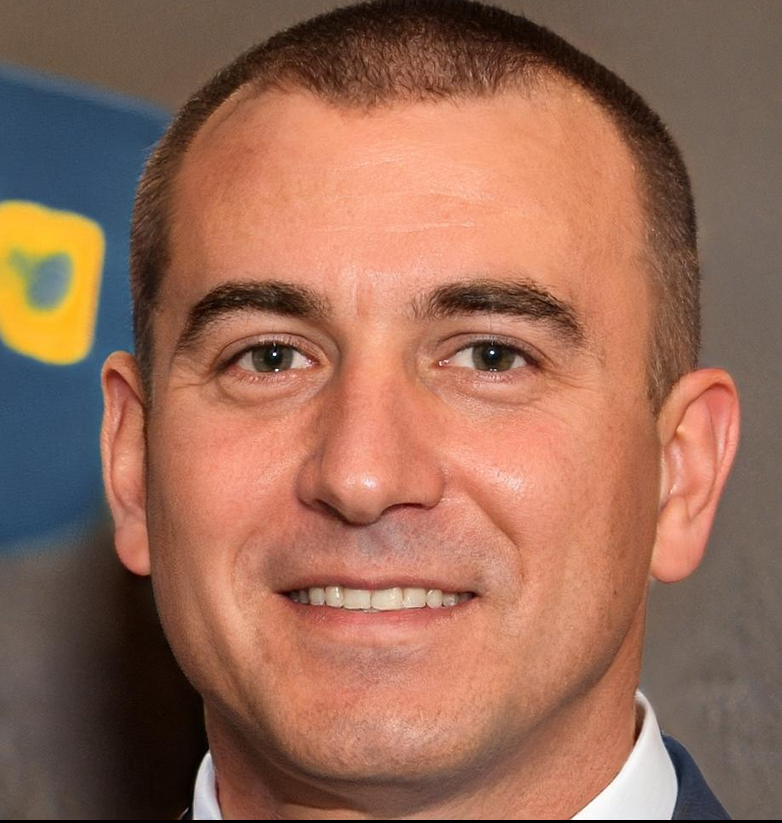
Don Schmidt
15+ years of experience in sleep therapy and Cognitive Behavioral Therapy for Insomnia (CBT-I). Passionate about connecting individuals struggling with sleep disorders to evidence-based, non-medical treatment solutions. Author of hundreds of articles and comprehensive guides on sleep health, CBT-I techniques, and overcoming insomnia. When not helping clients achieve better sleep, you can find me hiking with my family and dogs or enjoying a good book.
Ready to connect with a provider?
Allow us to connect you with a provider who can help.
